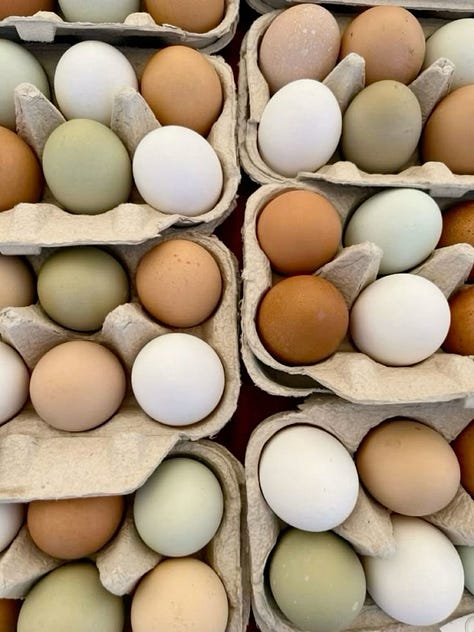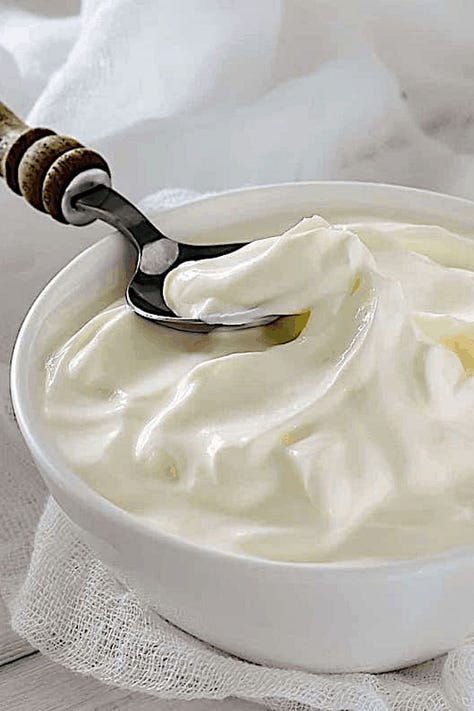You’re not alone! Social media trends surrounding dairy confuse us all, but the good news is, dairy has a place in a gut-healthy diet. Dairy is not just “good” or “bad”, it really comes down to the type of dairy, your individual tolerance, and how it fits into your overall eating pattern. The key is finding what works for you.



Gut-Friendly Nutrients In Dairy:
Dairy foods like milk, yogurt, and kefir (labneh) are packed with nutrients that support digestion and overall health.
Calcium: Calcium has a far bigger role than just being an essential for bone health, it is also crucial for the gut. Calcium helps with muscle contractions (including in your GI tract) which helps digestion go smoothly. It also supports the gut lining, which acts as a barrier, keeping harmful substances out and nutrients in.
Vitamin D: Vitamin D is often added to milk (since natural sources are limited). Vitamin D helps regulate inflammation in the body, including in the gut. It also supports a healthy microbiome. Low Vitamin D has been linked to to increased gut permeability (also known as “leaky gut”) and inflammatory conditions like IBS and IBD
Protein: Dairy contains high-quality protein (meaning it contains all 9 essential amino acids). These proteins are key for repairing and maintaining every tissue in your body, including the cells that make up your gut lining. A healthy gut lining is your body’s first line of defense against harmful bacteria and toxins.
B Vitamins: Dairy is a great source of B vitamins, including riboflavin (B2) and vitamin B12. Riboflavin helps convert food into energy and supports the maintenance of mucous membranes (including those in your digestive tract). Vitamin B12 is essential for red blood cell production and nerve function, both of which play indirect but important roles in gut health.
Fermented Dairy: Fermented dairy products (like yogurt, kefir, and some cheeses) naturally contain probiotics (live bacteria that can support the balance of your gut microbiome). When eaten regularly, these probiotic-rich foods help:
Replenish beneficial gut bacteria: Probiotics help restore diversity in your gut microbiome by adding more of the “good” bacteria that keep harmful microbes in check. This is especially helpful after taking antibiotics, which can wipe out both good and bad bacteria.
Improve regularity and stool consistency: Certain strains of probiotics found in yogurt and kefir have been shown to support motility and improve stool texture, making trips to the bathroom more predictable and comfortable.
Reduce bloating and gas: Some probiotic strains help break down food more efficiently in the gut, which can reduce fermentation and gas buildup, leading to less bloating
Support immune function: About 70% of your immune system lives in your gut. By promoting a healthier balance of gut microbes, fermented dairy can help your immune system better respond to infections, inflammation, and even food sensitivities.
Look for phrases like “live and active cultures” on food labels. These often include strains like:
Lactobacillus bulgaricus, Streptococcus thermophilus, Lactobacillus acidophilus, and Bifidobacterium lactis, all known for their gut-boosting effects.
Not all dairy works for everyone: If you’re lactose intolerant or dairy-sensitive, you can still enjoy gut-friendly dairy with a few tweaks:
Lactose-free milk and yogurt still provide the same nutrients, minus the discomfort.
Aged cheeses like cheddar, Swiss, and Parmesan are naturally low in lactose.
Kefir may be easier to tolerate due to its probiotic content and lower lactose levels.
Not all dairy is created equal. To make gut-friendly choices, look for:
Products with no added sugars
Labels that say “live and active cultures”
Organic or grass-fed when possible (for higher omega-3 content and better fat quality)
Plain versions you can flavor yourself with things like fruit or honey
Dairy doesn’t have to be all or nothing. If it works for your body, it can be an easy, delicious way to support gut health, especially when you include fermented varieties. Listening to your body and experimenting with what feels good for your gut is one of the best ways to build a sustainable, nourishing routine.
xoxo,
Jasmin D the RD




Thanks for the information. This is pretty clear and straightforward.
Thank you so much for sharing!